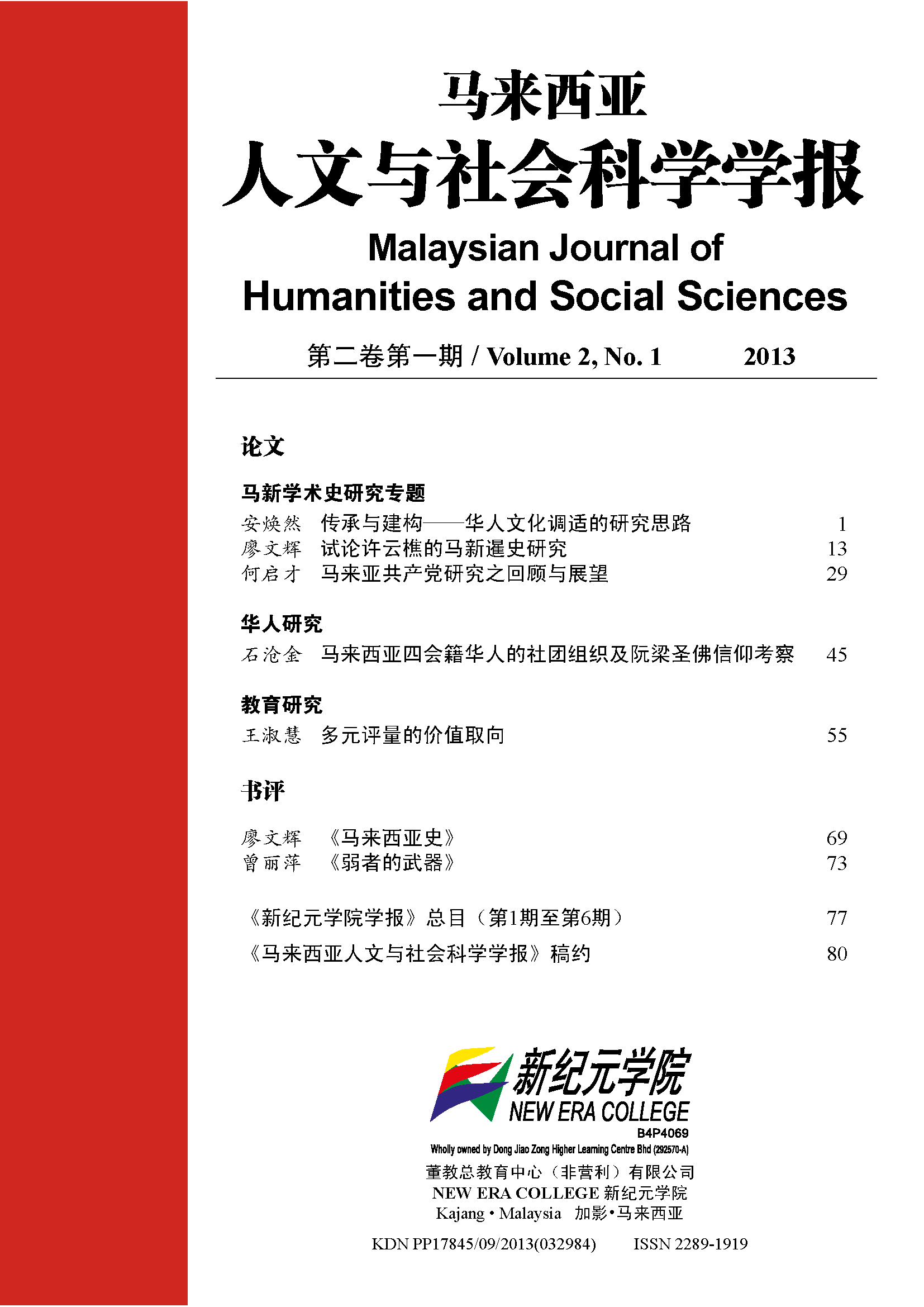多元评量的价值取向 The Value Orientation of Multi-Dimensional Evaluation
Keywords:
多元评量、价值取向、人的发展、理解学生, Multi-dimensional evaluation, Value orientation, Human development, Understanding studentsAbstract
在教学评量改革中,依据不同的价值取向和不同的评量方式,都将直接影响学生的学习与成果。传统的评量偏重于对学生认知方面的评量,而忽视了对学生在情意和技能层面的评量。为了学生的全面发展及适切地落实评量的真正意义,有必要对现有评量的价值取向进行检讨,并建立多元取向的评量价值观。基于学生都不会希望自己在被评量时得到负向的结果,对于积极正向的评量,绝大多数的学生都是乐意接受,且会因此受到鼓舞的,有些学生甚至可能因此而自信心倍增,从而拥有更多的满足感,创造了更高的学习成就。为此,在建构多元评量的价值取向时,应以“人”作为重要的考量点,思虑如何在进行教学评量的同时,协助学生认识自己、定位自己、实现自我增值。本文通过揭示人的发展、赏识学生和理解学生等三个方面与评量之间的关联,冀望为探讨多元评量价值取向提供更多元的思维和参考依据。
In attempts to improve the evaluation of teaching, different value orientations and evaluation methods have a direct influence of student learning and performance. The traditional method of evaluation deals more with students’ cognitive domain rather than with the psychomotor and affective domains. For the sake of the all-round development of students and to realize the true significance of evaluation, it is necessary to review the existing value orientation of current evaluation so as to establish one that is based on a diversity of values. Students loathe negative evaluation and are more receptive to one that is positive and diversified and that will help to them to gain self-confidence and hence to enjoy a greater sense of satisfaction and to achieve better performance. It an attempt to construct the value orientation of a multi-dimensional evaluation method, it is necessary to adopt a “human-oriented” approach that will at the same time assist students to know themselves and their “worthiness” so as they may further enhance their own self-esteem. This study will relate student assessment to human development, getting to know students as individuals and understanding them in the hope of providing fresh thoughts and points of reference on the value orientation of multi-dimensional evaluation.




